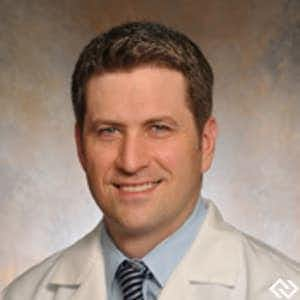Physician Fails To Administer Prescription Medication To Alcoholic Patient
This case involves a 58-year-old female patient with a history of heart problems and alcoholism. The patient had developed alcoholism in her early fifties following the death of her son. One evening, the patient drank to the point of falling unconscious. She was taken to the emergency room and was sent to a rehabilitation center for a 12-hour alcohol hold. While in the rehabilitation center, the patient was not administered her prescription heart medication by the physician responsible for observing her. She was left unattended for over an hour before she was found unconscious on the floor. Resuscitation attempts were made, but the patient ultimately passed away. It was alleged that the patient died as a result of not receiving her prescription medication. A cardiologist was sought to review the records and determine the cause of death.
Question(s) For Expert Witness
1. Please describe your background in cardiology.
2. How would you determine whether the patient's survival depended on receiving her prescription medication?
Expert Witness Response E-044112
 I am an NIH-funded basic science investigator in the fields of cardiac arrhythmias and development. My clinical responsibilities make up 25% of my practice. The patient's survival depended on which medications she was taking and for what specific cardiac conditions. If the patient had uncontrolled hypertension, then missing 1-2 days of her medication could have contributed to a hemorrhage (subarachnoid or aortic dissection/rupture) due to a hypertensive emergency. If the cause of death was simple heart failure or mild hypertension, it is unlikely that missing 1-2 days of her medication killed her outright. Excessive drinking can worsen the risks of arrhythmic death, therefore, the patient's blood alcohol content should have been measured. By that same token, a few days of heavy drinking was unlikely to kill her, especially if she had been medically cleared by an emergency physician. If she had recently undergone a percutaneous coronary intervention and was on antiplatelet agents that were withheld from her, then a stent may have thrombosed and caused the arrest. If the patient was suffering from a paroxysmal ventricular arrhythmia and was on certain antiarrhythmics, missing these could have set off an uncontrolled rhythm resulting in ventricular fibrillation. It should also be investigated whether she had suicidal ideations and intended to overdose on medication. An important step will be to investigate whether she was taking her prescription medications regularly prior to admission.
I am an NIH-funded basic science investigator in the fields of cardiac arrhythmias and development. My clinical responsibilities make up 25% of my practice. The patient's survival depended on which medications she was taking and for what specific cardiac conditions. If the patient had uncontrolled hypertension, then missing 1-2 days of her medication could have contributed to a hemorrhage (subarachnoid or aortic dissection/rupture) due to a hypertensive emergency. If the cause of death was simple heart failure or mild hypertension, it is unlikely that missing 1-2 days of her medication killed her outright. Excessive drinking can worsen the risks of arrhythmic death, therefore, the patient's blood alcohol content should have been measured. By that same token, a few days of heavy drinking was unlikely to kill her, especially if she had been medically cleared by an emergency physician. If she had recently undergone a percutaneous coronary intervention and was on antiplatelet agents that were withheld from her, then a stent may have thrombosed and caused the arrest. If the patient was suffering from a paroxysmal ventricular arrhythmia and was on certain antiarrhythmics, missing these could have set off an uncontrolled rhythm resulting in ventricular fibrillation. It should also be investigated whether she had suicidal ideations and intended to overdose on medication. An important step will be to investigate whether she was taking her prescription medications regularly prior to admission.
About the author
Wendy Ketner, M.D.
Dr. Wendy Ketner is a distinguished medical professional with a comprehensive background in surgery and medical research. Currently serving as the Senior Vice President of Medical Affairs at the Expert Institute, she plays a pivotal role in overseeing the organization's most important client relationships. Dr. Ketner's extensive surgical training was completed at Mount Sinai Beth Israel, where she gained hands-on experience in various general surgery procedures, including hernia repairs, cholecystectomies, appendectomies, mastectomies for breast cancer, breast reconstruction, surgical oncology, vascular surgery, and colorectal surgery. She also provided care in the surgical intensive care unit.
Her research interests have focused on post-mastectomy reconstruction and the surgical treatment of gastric cancer, including co-authoring a textbook chapter on the subject. Additionally, she has contributed to research on the percutaneous delivery of stem cells following myocardial infarction.
Dr. Ketner's educational background includes a Bachelor's degree from Yale University in Latin American Studies and a Doctor of Medicine (M.D.) from SUNY Downstate College of Medicine. Moreover, she is a member of the Board of Advisors for Opollo Technologies, a fintech healthcare AI company, contributing her medical expertise to enhance healthcare technology solutions. Her role at Expert Institute involves leveraging her medical knowledge to provide insights into legal cases, underscoring her unique blend of medical and legal acumen.
Find an expert witness near you
What State is your case in?
Subscribe to our newsletter
Join our newsletter to stay up to date on legal news, insights and product updates from Expert Institute.



